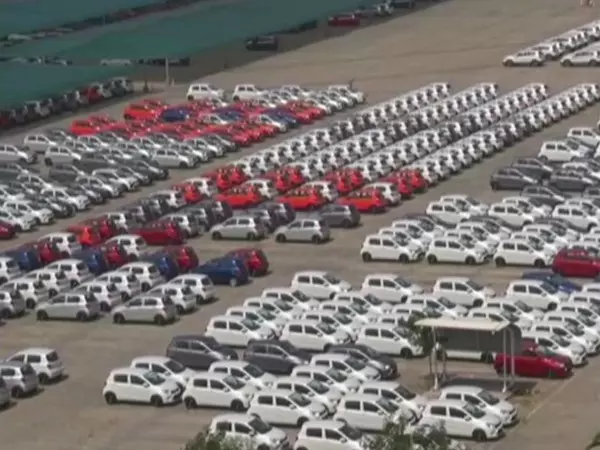India logs 9.1% jump in automobile sales in 2024 with growth in most segments

Retail automobile sales in India grew 9.1 per cent in 2024 to 2.61 crore units (Representational image: ANI)
New Delhi: Retail automobile sales in India grew 9.1 per cent in 2024 to 2.61 crore units, defying multiple headwinds like extreme weather, elections, and uneven monsoons.
Segment-wise, two-wheeler sales grew 10.7 per cent, three-wheelers 10.4 per cent, passenger vehicles 5.1 per cent and tractor 2.5 per cent segments posted growth, while commercial vehicles remained nearly flat at 0.07 per cent, according to data released by the Federation of Automobile Dealers Association (FADA).
Three-wheelers, passenger vehicles and tractor segments reached new all-time highs; two-wheelers almost breached its 2018 peak and commercial vehicles have yet to surpass its 2018 level.
Challenges for internal combustion engine two-wheelers included finance constraints and rising competition from electric vehicles, the industry body said in a statement Tuesday. Commercial vehicles struggled with election-driven uncertainty and low infra-spend; passenger vehicle growth was led to margin pressures from higher inventory and discounts.
In December, the last month of 2024, overall retail automobile sales however declined by 12.4 per cent, with two-wheelers (-17.6 per cent), three-wheelers (-4.5 per cent), PV (-1.9 per cent) and CV (-5.2 per cent) facing de-growth. Only tractor showed a 25.7 per cent yearly jump in sales in December.
In the near term, FADA asserts that about 48 per cent of automobile dealers expect growth in January, 41.22 per cent see flat sales and 10.69 per cent predict a slowdown.
Two-wheeler demand could benefit from improved MSP and rural liquidity, though financing and electric vehicle transition remain key challenges.
Passenger vehicle should get a boost from new launches, marriage-season demand and promotions--but possible price hikes could temper gains, FADA noted.
In long term, considering the entire year 2025, 66 per cent of dealers expect growth, 26.72 per cent foresee stability and only 6.87 per cent project a downturn.
"Overall, FADA remains optimistic that market recovery, coupled with strategic OEM support and policy-level clarity, will enable the automotive retail industry to end 2025 on a robust note," the statement added.
Segment-wise, two-wheeler sales grew 10.7 per cent, three-wheelers 10.4 per cent, passenger vehicles 5.1 per cent and tractor 2.5 per cent segments posted growth, while commercial vehicles remained nearly flat at 0.07 per cent, according to data released by the Federation of Automobile Dealers Association (FADA).
Three-wheelers, passenger vehicles and tractor segments reached new all-time highs; two-wheelers almost breached its 2018 peak and commercial vehicles have yet to surpass its 2018 level.
Challenges for internal combustion engine two-wheelers included finance constraints and rising competition from electric vehicles, the industry body said in a statement Tuesday. Commercial vehicles struggled with election-driven uncertainty and low infra-spend; passenger vehicle growth was led to margin pressures from higher inventory and discounts.
In December, the last month of 2024, overall retail automobile sales however declined by 12.4 per cent, with two-wheelers (-17.6 per cent), three-wheelers (-4.5 per cent), PV (-1.9 per cent) and CV (-5.2 per cent) facing de-growth. Only tractor showed a 25.7 per cent yearly jump in sales in December.
In the near term, FADA asserts that about 48 per cent of automobile dealers expect growth in January, 41.22 per cent see flat sales and 10.69 per cent predict a slowdown.
Two-wheeler demand could benefit from improved MSP and rural liquidity, though financing and electric vehicle transition remain key challenges.
Passenger vehicle should get a boost from new launches, marriage-season demand and promotions--but possible price hikes could temper gains, FADA noted.
In long term, considering the entire year 2025, 66 per cent of dealers expect growth, 26.72 per cent foresee stability and only 6.87 per cent project a downturn.
"Overall, FADA remains optimistic that market recovery, coupled with strategic OEM support and policy-level clarity, will enable the automotive retail industry to end 2025 on a robust note," the statement added.
( Source : ANI )
Next Story

